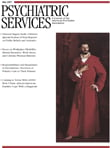Let's Get Organized: An Intervention for Persons With Co-occurring Disorders
An intervention for individuals with co-occurring emotional and substance use disorders was conducted in 2006 at the Starhill facility of Palladia, a residential therapeutic drug facility located in the Bronx, New York. The program, The Occupational Therapy—Let's Get Organized Life Skills, was sponsored by Target Needs Funding from the United Way of New York City to establish a Lifeline/Life Support Program. Interventions were designed to educate participants in time management and daily organizational skills and trial-and-error learning strategies.
Participants were individuals who had difficulty managing their daily routines. Three screening tools were used to identify potentially eligible participants: the Educational and Health Survey from Substance Use Disorder Treatment for People With Physical and Cognitive Disabilities (number 29 of the Treatment Improvement Protocol Series), the Kohlman Evaluation of Living Skills, and the Allen Cognitive Level Screen.
Participants were selected on the basis of Allen's cognitive model level 5, whereby an individual is capable of new learning, although he or she may have difficulty planning ahead or anticipating consequences of actions. Interventions for groups at cognitive level 5 (exploratory learning) should include multiple means of sensory stimuli and engagement to tap the learner's attention. In the Let's Get Organized group, wall clocks, calendars, file folders, and bulletin boards containing popular articles were in the training room.
The Let's Get Organized group was designed as a ten-week module consisting of two one-hour sessions per week to provide consistency and repetition to ensure integration and generalization of new learning and establish proper habit formation. Each group session followed a specific six-stage format.
In stage 1 clients used the sign-in sheets in an individualized file folder for their work sheets, attendance sheet, and emotion sheet. In stage 2 appointment books were distributed and personalized. At each subsequent session, participants reviewed and entered new information into their appointment books, proudly sharing various ways of personalizing them through the use of color coding, family photographs, Post-Its, and alligator clips. Habit-building experiences and resistance to using the appointment book were discussed.
In stage 3 time management and organization activity work sheets from Precin's Living Skills for Recovery Workbook were used with modifications of the activities to conform to Allen's level 5. In stage 4 discussion of the completed worksheet or activity by clients reassured members that using trial and error to correct mistakes was an acceptable and valuable learning tool. The group norm "mistakes are OK" promoted respect for each other's efforts, lowered clients' performance anxiety, and encouraged willingness to try out new behaviors. Clients were encouraged to notice their own and others' learning style.
In stage 5 clients were given homework. The homework was to use their appointment books daily, and this new habit was reinforced in the residential community at large. Homework was also stimulated by the worksheets or activities. The sixth and final stage, closing, included a general clean-up of materials and return of worksheets to files. Clients were informed of the next group topic, which created anticipation and motivated future participation. The group ended with the Serenity Prayer.
The 16 participants completed two pretest and posttest outcome measures, at the beginning of the first group session and at the end of the final session. The measures were the time management knowledge scale and the time management behavior scale, which were designed specifically for use with this therapeutic group. Paired-sample t tests were used to compare pre- and posttest scores. Scores on the time management knowledge scale showed significant improvement after participation in the group intervention (t=4.06, df=15, p=.001). Results support the efficacy of group intervention for improving knowledge related to time management. The lack of a statistically significant improvement on the time management behavior scale may be due to type II errors with a small sample and the limited number of items on the scale.
Punctuality improved over time. All participants kept their appointment books beyond the ten-week program. They commented on how many appointments they used to miss before they began using their appointment books.
Few interventions address the cognitive needs of this population. This occupational therapy intervention provided practical skills needed in everyday living and directed the focus of recovery to creating stable routines, keeping track of time and appointments, becoming organized, and following through with responsibilities in a supportive, novel, and exploratory atmosphere of shared learning.



